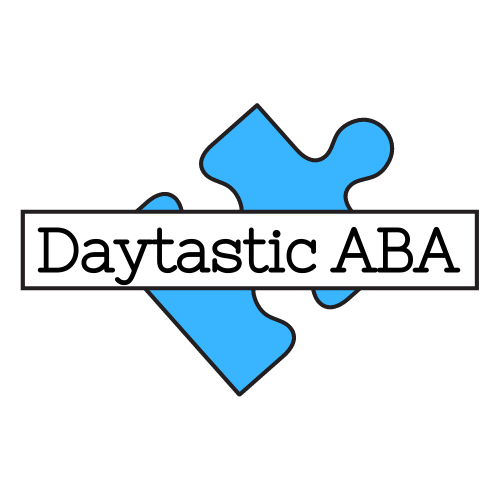Interobserver Agreement (IOA): Ensuring Accuracy for a Better Quality of Life
Interobserver Agreement (IOA): Ensuring Accuracy for a Better Quality of Life
For children with Autism Spectrum Disorder (ASD), high-quality behavioral interventions can make a significant difference in their development and overall quality of life. Families and communities depend on professionals in Applied Behavior Analysis (ABA) to provide effective and reliable support to help children learn and grow. One key component that ensures the effectiveness of these interventions is Interobserver Agreement (IOA). IOA plays a crucial role in making sure that the skills children are learning and the progress they are making are measured accurately and consistently. This accuracy helps in tailoring interventions that best support each child’s unique needs (Cooper, Heron, & Heward, 2020).
What is Interobserver Agreement (IOA)?
Interobserver Agreement (IOA) is a process that ensures different professionals or caregivers observing a child’s behavior record the same information consistently. When multiple observers agree on what they see and record, families can have confidence that the data used to shape their child’s learning and development is reliable. This agreement helps behavior analysts make informed decisions about how to support children in achieving meaningful progress in their daily lives (Kazdin, 2011).
Why is IOA Important in ABA?
IOA is not just about numbers and data; it directly impacts the effectiveness of interventions that help children with ASD build essential life skills. Here’s why IOA matters so much in ABA therapy:
1. Ensuring Children Get the Right Support
When professionals working with a child consistently agree on what behaviors they see, it ensures that the child is receiving appropriate interventions. If data is inconsistent, a child might not get the right level of support, potentially slowing down progress (Baer, Wolf, & Risley, 1968).
2. Building Confidence for Families
For parents and caregivers, knowing that professionals are accurately assessing their child’s development provides peace of mind. They can trust that the intervention strategies in place are based on reliable information and are tailored to their child’s needs (Cooper et al., 2020).
3. Helping Children Develop New Skills
ABA therapy focuses on helping children with ASD learn and practice essential skills, from communication to daily living tasks. IOA ensures that progress is measured correctly, so children receive the right encouragement and reinforcement to keep moving forward (Leaf et al., 2016).
4. Creating a Collaborative Community
With accurate data collection, different therapists, teachers, and caregivers can work together seamlessly. When everyone involved in a child’s life is on the same page, it creates a more supportive and structured environment that benefits the child’s growth (Sundberg & Partington, 1998).
5. Preventing Miscommunication and Bias
People may sometimes see the same behavior differently based on their own experiences or expectations. IOA reduces the chances of bias by ensuring that multiple professionals confirm what is happening. This leads to fair and accurate assessments, which means children receive the best possible care and support (Kazdin, 2011).
How IOA Supports a Child’s Quality of Life
Children with ASD thrive when they have a structured and consistent learning environment. IOA helps create this consistency by ensuring that everyone involved in a child’s care is aligned in their observations and strategies. When progress is measured correctly, children have more opportunities to learn, grow, and build independence.
For example, if a child is learning to ask for help, IOA ensures that every adult working with the child recognizes and reinforces the behavior in the same way. This consistency helps the child understand what is expected and supports quicker learning and confidence building (Cooper et al., 2020).
A Commitment to Meaningful Progress
At its core, IOA is about making sure that the efforts of families, therapists, and educators are leading to meaningful progress. The goal of ABA therapy is to enhance the lives of children with ASD by teaching them skills that improve their independence and communication. When data collection is accurate and reliable, it ensures that every moment spent in therapy is meaningful and productive (Baer et al., 1968).
Conclusion
Interobserver Agreement (IOA) may sound technical, but its impact is deeply personal. It is a key factor in ensuring that children with ASD receive the best possible support to enhance their skills and improve their daily lives. By making sure that behavioral progress is measured accurately, IOA helps create structured, effective interventions that allow children to reach their full potential. Families can take comfort in knowing that the professionals supporting their child are using reliable and consistent data to help them grow, learn, and thrive in their communities.
References
Baer, D. M., Wolf, M. M., & Risley, T. R. (1968). Some current dimensions of applied behavior analysis. Journal of Applied Behavior Analysis, 1(1), 91-97.
Cooper, J. O., Heron, T. E., & Heward, W. L. (2020). Applied behavior analysis (3rd ed.). Pearson.
Kazdin, A. E. (2011). Single-case research designs: Methods for clinical and applied settings (2nd ed.). Oxford University Press.
Leaf, J. B., Cihon, J. H., Ferguson, J. L., Milne, C. M., Leaf, R., & McEachin, J. J. (2016). The autism partnership method: Social skills groups for individuals with autism spectrum disorder. Different Roads to Learning.
Sundberg, M. L., & Partington, J. W. (1998). Teaching language to children with autism or other developmental disabilities. AVB Press.











